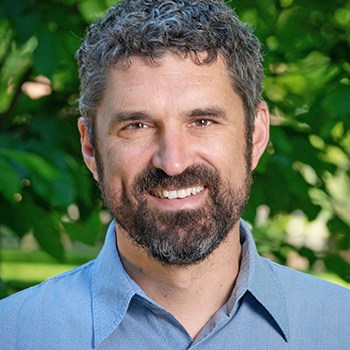Location
SEAS
Phone
Additional Title
Associate Professor, School for Environment and Sustainability
Education
- Ph.D., Duke University, Durham, NC, 2008
- B.S., Cornell University, Ithaca, NY, 1995
Research Interests
Dr. Gronewold’s research spans hydrological science topics ranging from basin-scale water budget simulation and forecasting (with an emphasis on the North American Great Lakes) to quantifying spatiotemporal variability in nearshore water quality and water quality measurements. Dr. Gronewold is particularly interested in incorporating probability theory and Bayesian inference into conventional hydrology and engineering science problems to propagate data and model parameter uncertainty and variability into explicit expressions of forecast uncertainty, and to provide a basis for risk-based management decisions.
Awards
- Department of Commerce Sustainability, Energy, and Environmental (SEE) Ambassador, 2018
- NOAA Bronze Medal, 2016
Publications
- Gronewold, A.D., V. Fortin, R. Caldwell, J. Noel, 2018. Resolving hydrometeorological data discontinuities along an international border. Bulletin of the American Meteorological Society. 99(5), 899-910.
- Fujisaki-Manome, A., L. Fitzpatrick, A.D. Gronewold, E.J. Anderson, B.M. Lofgren, C. Spence, J. Chen, C. Shao, D. Wright, C. Xiao, 2017. Turbulent heat fluxes during an extreme lake effect snow event. Journal of Hydrometeorology. 18(2), 3145-3163.
- Gronewold, A.D., K. McMahan, M. Sobsey, 2017. The compartment bag test (CBT) for enumerating fecal indicator bacteria: basis for design and interpretation of results. Science of the Total Environment. 587, 102-107.
- Mason, L. A., C.M. Riseng, A.D. Gronewold, E.S. Rutherford, J. Wang, A. Clites, S. Smith, P. McIntyre, 2016. Fine-scale spatial variation in ice cover and surface temperature trends across the surface of the Laurentian Great Lakes. Climatic Change, 138(1-2), 71-83.
- Gronewold, A.D. and C.A. Stow, 2014. Water loss from the Great Lakes. Science, 343(6175), 1084–1085
